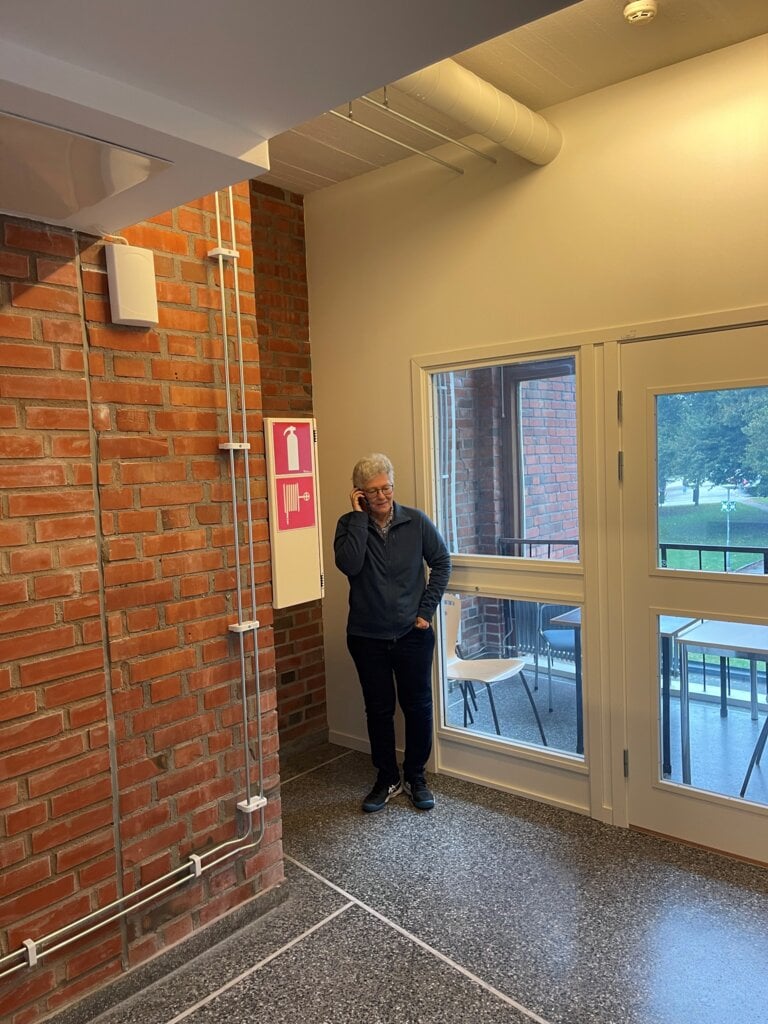Anne L’Huillier
Interview
Interview, December 2023
Interview with the 2023 Nobel Prize laureate in physics Anne L’Huillier on 6 December 2023 during the Nobel Week in Stockholm, Sweden.
Anne L’Huillier answers the following questions (the links below lead to clip on YouTube):
0:00 – What inspired your passion for science?
1:21 – What do you enjoy about science?
1:50 – Was there a teacher or a mentor that really influenced your scientific career?
2:52 – How do you want your students to see you as a teacher?
3:25 – How did you feel when you found out about the award?
5:15 – Do you think it’s important that science is an international discipline?
6:43 – When failure strikes, what do you do to move forward?
7:08 – What advice do you give to your students about failure?
8:00 – How do you support the students in your lab?
9:12 – What advice would you give to a student or young researcher?
10:13 – What qualities make a good scientist?
11:37 – What skill has been particularly important to your career?
13:07 – Do you prefer research or teaching?
14:45 – Why is diversity in science important?
16:40 – How do you like to spend your free time?
17:45 – Are there certain environments that you think encourage creative thinking?
18:18 – How do you maintain your own creativity?
First reactions. Telephone interview, October 2023
“Even now, 30 years afterwards, we are still learning new things”
In what was surely understatement, 2023 physics laureate Anne L’Huillier described herself as “A little bit busy” when Adam Smith reached her a couple of hours after she had received the news. In this brief call she describes how special it feels to receive the prize and how her research into the overtones of light, which she revealed in the 1980s, continues to excite her: “Even now, 30 years afterwards, we are still learning new things.”
Interview transcript
Anne L’Huillier: Hej?
Adam Smith: Hello, this is Adam Smith calling from nobelprize.org, am I speaking with Anne L’Huillier?
AL: Yes, but I am a little bit busy now.
AS: I can well imagine, and I promise not to keep you on the phone for more than two or three minutes.
AL: Ok.
AS: Thank you very, very much! Of course, many congratulations.
AL: Thank you very much!
AS: I gather that you were teaching when you heard, and I just wanted to know what your students thought of this news?
AL: I think they were very happy,
AS: Of course.
AL: It was really fun, let’s put it this way!
AS: It must have changed the lesson.
AL: Yes, but I tried to, I continued my lecture.
AS: That shows tremendous presence of mind. I gather that it must all be a fairly overwhelming thing to happen, and you’re deluged. But I suppose, I mean, I recall that you were on the Nobel Committee until what, 2015, so you know all the behind the scenes stuff, you know what led to this. Does that, in some way, make it even more special that you know how…
AL: Yes, yes, it definitely does, and I know what it is to get a Nobel Prize, it’s extremely difficult, and I know the work behind, which is done by the committee, so I am very, very grateful.
AS: Of course, may I just ask you about the, you know, just about the thrill of studying these sort of secret sides of light, the overtone you’re able to create. It was almost forty years ago, I guess, that you were switched on to this. What is it that makes it just so thrilling to study?
AL: This is a basic research, I don’t know, this was new, it was not expected, and not predicted. The understanding took some time, took several years, so it was very interesting to study and to try to understand more and then later on, many years after, look for applications and explore new things with it.
AS: It seems such a wonderful combination of the head and the hands, if you like, the complexity of the theory and the practicality of producing these exquisitely sensitive pieces of apparatus.
AL: Yes, I mean this is what makes the field so, so exciting, and even now, thirty years afterwards, we are still learning new things, we are still trying to improve the process in order for some applications, so its complex physics but that makes it very, very interesting.
AS: Of course, thank you very much indeed, and thank so much for speaking to me in the midst of all this. Congratulations again.
AL: Thank you!
AS: Bye bye!
AL: Bye!

Did you find any typos in this text? We would appreciate your assistance in identifying any errors and to let us know. Thank you for taking the time to report the errors by sending us an e-mail.
Nobel Prizes and laureates
Six prizes were awarded for achievements that have conferred the greatest benefit to humankind. The 14 laureates' work and discoveries range from quantum tunnelling to promoting democratic rights.
See them all presented here.
